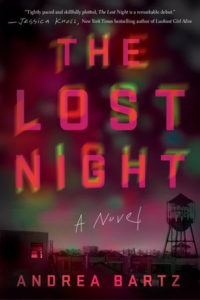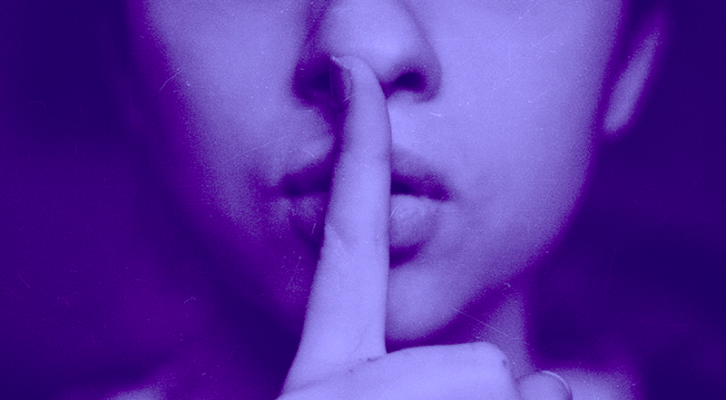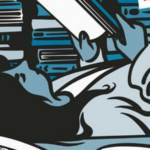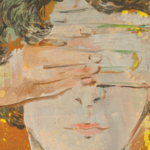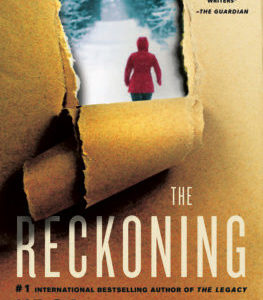“That’s not how it happened.”
We’ve all experienced that tense, disorienting moment when our memory of a shared event clashes with someone else’s—bewilderment and self-doubt closing in as we argue over whose version is accurate. Maybe you’re sure your ex came to that wedding, or you’re convinced your former neighbor had an angry dog, not just cats. Sometimes you can check the disputed fact on the spot, and—if you’re wrong—watch what felt like a certainty crumble into a lie. Or, in the absence of evidence, you agree to disagree, unsettled by the realization there’s no such thing as hard-and-fast truth.
There’s a reason so many great thrillers hinge on memory loss: We rely on our recollections to construct our identity and make sense of the present, and the absence of memories, the lack of buoys in the surf, leaves us adrift and terrified. Examples abound: The Bourne Identity by Robert Ludlum starts with a blank where memories would be. S.J. Watson’s Before I Go to Sleep centers on an amnesiac who can’t recall her past or form new memories playing detective with her own past. The heroine of The Girl I Used to Be by Mary Torjussen goes from embarrassment to horror when someone starts blackmailing her about a hazy client dinner when she had way too many drinks. The Girl on the Train by Paula Hawkins also pivots on a booze-fueled blackout, while the protagonist of Ruth Ware’s In a Dark, Dark Wood wakes up in a hospital, unsure of what happened but confident someone is dead.
What makes the amnesiac setup such a useful and provocative staple of the genre? It taps into a universal fear, one that feels familiar to the reader. In the aggregate, our memories become the scaffolding of our identities: I am who I am because of the experiences I’ve had, the people I’ve met, the things I’ve seen, and the lessons I’ve learned. Being robbed of all your memories means losing your sense of self; that’s what makes the Jason Bourne/Memento/Before I Go to Sleep/50 First Dates trope so viscerally scary.
Total amnesia aside, there’s a much more workaday side to memory loss. With the tiny exception of those with total recall (a rare medical condition known as highly superior autobiographical memory, or HSAM), we humans all go through life forgetting great swaths of our own experiences. (Remember the third Tuesday of your sophomore year? Me neither.) Most of the time, this ongoing erasure is far from problematic. But what if you couldn’t remember something that later became critical? (Worse, what if the memory lapse was your own fault, since you’d drunk until alcohol shut down your hippocampus’s ability to shunt information from neuron to neuron?) Ask Adnan Syed, still desperately trying to reconstruct that otherwise ordinary high school day, or the characters in these thrillers—the knowledge that you could forget something that may later bite you in the ass is disturbing at best and horrifying at worst.
In my own debut thriller, The Lost Night, the narrator, Lindsay, at first believes her recollection of an important night ten years past is pretty solid—hazy from the fog of beer and shots, maybe, but clear enough. Because that night had consequences she can’t forget: On a Friday night in 2009, Lindsay and her friends partied their way around the labyrinthine warehouse-turned-artists’-loft they called home—pregaming in someone’s living room, smoking on the roof, making their way to a loud concert on the sixth floor. It was an evening like any other, until it wasn’t, and now she’ll always remember it as the night she went to bed early and her best friend, Edie, was found dead in an apartment near a suicide note.
Then a chance encounter ten years later challenges Lindsay’s version of events when a former friend announces, “No, you weren’t at the concert with us.” (“Her expression matched mine: that charged look when you just know, know, the other person’s remembering it wrong,” Lindsay recounts.) Self-doubt creeps in, and Lindsay begins to question if she blacked out without realizing it. Disturbed, she turns to the only stand-ins she has for her own memory: the Flip cams, external hard drives, old emails, and outdated social media she relied on in 2009.
You don’t have to be blackout to rely on technology as a substitute memory bank. In fact, there’s burgeoning research showing that technology is making us remember things less well, since we basically outsource the job of “remembering” to our devices. Many studies show that we remember stuff we’ve photographed less well than stuff we’ve merely seen. The logic is simple: Our lazy brains figure the smartphone will capture the event, so we don’t need to really attend to it ourselves. One study of families during their long-anticipated vacations, published in the Journal of Travel Research, found that “a preoccupation with smartphones resulted in the impairment of the family vacation experience as an autobiographic memory.” In other words, staying glued to their phones prevented people from absorbing experiences and making memories a part of their own identity.
In The Lost Night, I wanted to explore that interplay of committing stuff to memory vs letting technology do the work—especially in 2009, this funky in-between era when we didn’t automatically document everything, when videos and pictures and posts weren’t shared with future access in mind. Instagram and iPads didn’t exist; Twitter didn’t let you add hashtags to organize or find related posts, and iCloud hadn’t yet made its debut. Even the way we stored stuff quickly became obsolete: CD-ROMs and memory cards and digital cameras became locked vaults we can barely crack open these days. Your Flip cam didn’t “speak” with your flip phone, and you had to store all those old photos on an external hard drive somewhere. What if, in 2029, you weren’t able to access the photos and Facebook posts and tweets and Evernotes you’re creating now? Would you regret not paying more attention, not putting your phone down and letting an experience soak into your brain, take up residence in the hippocampus for later retrieval?
The world has learned some tough lessons over the last few months about the fallibility of memory: Witness Jill Abramson’s sloppy reporting, Brett Kavanaugh’s insistence that Christine Blasey Ford made the whole thing up, thriller writer Dan Mallory digging in his heels over a completely fabricated childhood, and more. As we grow more and more reliant on our devices, our memories are only going to grow weaker. At the heart of The Lost Night is the question we should all be asking ourselves, and then, hopefully, lowering our phones to let the present sink into our brains (not just the Cloud): If your memories make you who you are, who are you when you can’t trust your own memories?
***


